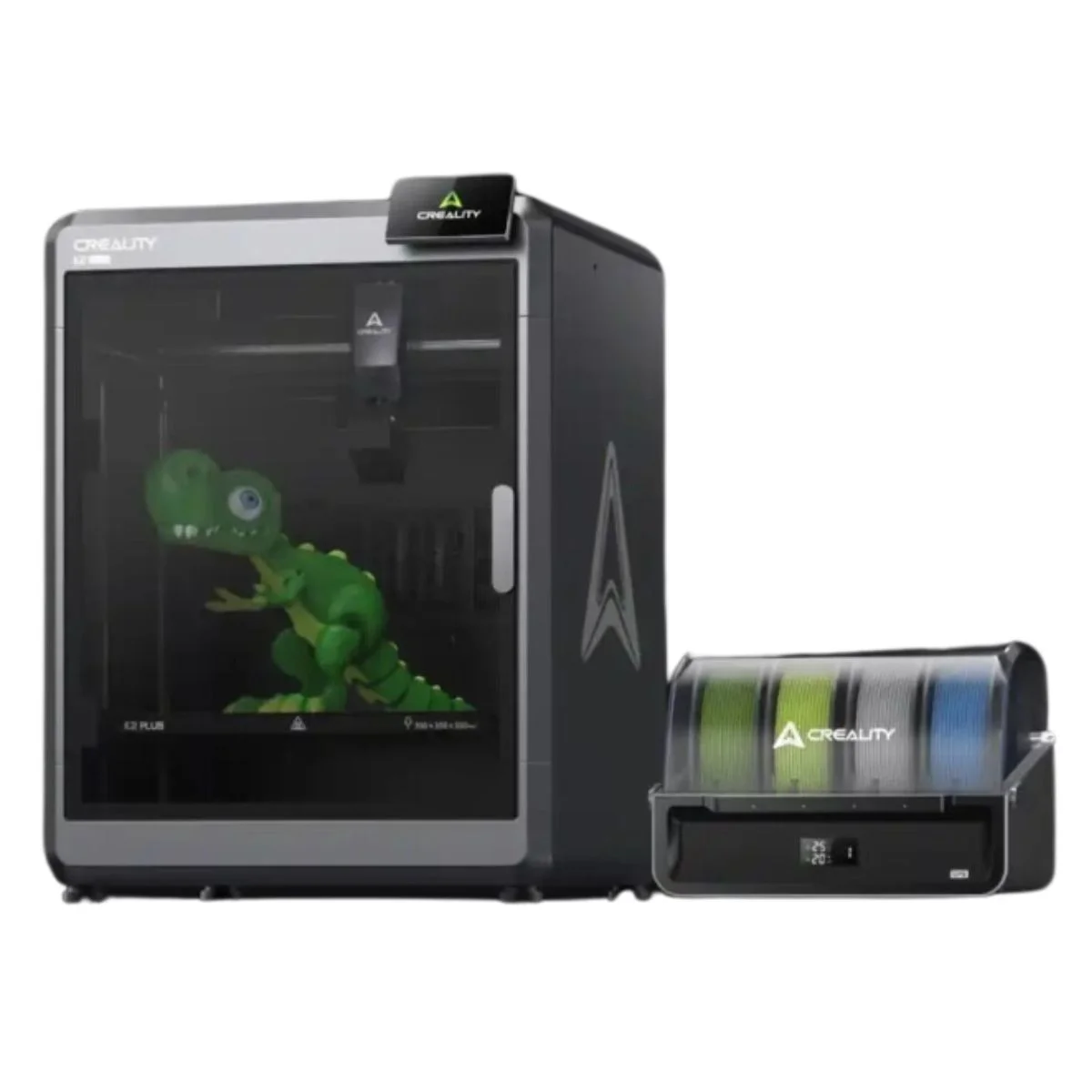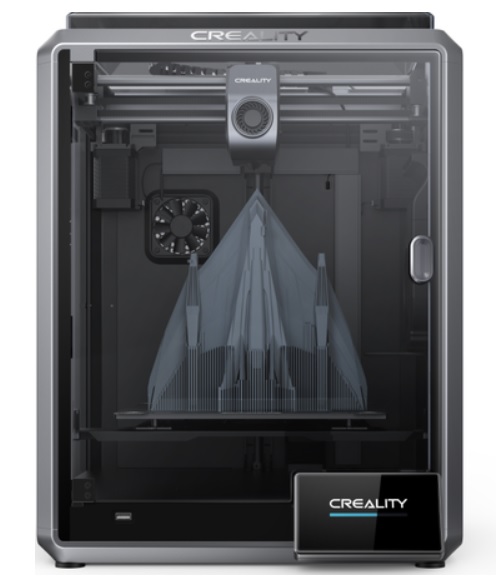Compare Creality K2 Plus vs Creality 3D K1
Comparison between the best 3D printers
Choose the best 3D printer at the best price. The cheapest 3D printers are here.
Buy a 3D printer here with 3D Fila.
 |
 |
|
| Model | Creality K2 Plus[BUY K2 Plus] |
Creality 3D K1[BUY K1] |
| Printing Material | Filament | Filament |
| Estimated price | $1500,00 | $399,00 |
| Manufacturer | Creality | Creality 3D |
| Release Year | 2024 | 2023 |
| Print Volume [mm] | 350x350x350 | 220x220x250 |
| Printer Size [mm] | 495x515x640 | 355x355x480 |
| Weight [kg] | 33,5 | 12,5 |
| Power Loss Recovery | YES | YES |
| Enclosed printer | YES | YES |
| Bed Leveling | Automatic | Automatic |
| Filament End Sensor | YES | YES |
| Bed type | Heated | Heated |
| Power supply system | Direct Drive | Direct Drive |
| Standard nozzle | 0,4 | 0,4 |
| Maximum Nozzle Temperature [°C] | 350 | 300 |
| Maximum Bed Temperature [°C] | 120 | 120 |
| Maximum printing speed [mm/s] | 600 | 600 |
| Filament holder | YES | YES |
| Camera for supervision | YES | YES |
| Recommended filaments | PLA, PETG, PET, TPU, PA, ASA, PC, PLA CE, PA-CF, PET-CF | ABS, PLA, PETG, PET, TPU, PA, ABS, ASA, PC, PLA-CF, PA-CF, PET-CF |
| Recommended slicers | Creality Print 5, Bambu Studio, Super Slicer, Cura, Prusa Slicer, Orca Slicer | Creality Print; Cura, Simplify3D e PrusaSlicer |
| Maximum Resolution [mm] | 0,1 | 0,1 |
| Processor | ||
| Display | Touchscreen 4,3'' | Display touchscreen 4,3'' |
| Power Supply | 1200 W | 110/220V / 350W |
| Connectivity | USB / WIfi | Ethernet / USB / Wi-Fi |
| Operating systems | Windows, Linux, Macbook | Windows, Mac, Linux |
| Date of registration in the system | 2024-06-26 | 2023-04-17 |
| Release date | 2024 | 2023 |
| Extra features | The Creality K2 Plus 3D Printer stands out for its multicolor printing, large build volume (350x350x350 mm) and Apus Direct Drive extruder with tri-metal protection nozzle. It features automatic anti-tilt leveling, FOC closed-loop motors and active chamber heating. In addition, it has an intelligent CFS filament management system, cameras for calibration and monitoring, a 4.3-inch touchscreen and advanced sensors to optimize the printing process. | The K1 is an extremely fast FDM 3D printer, reaching 600mm/s, 12 times faster than standard models. Equipped with a Core XY system and lightweight print head, it offers energy efficiency and high print quality. It stands out for its dual-gear extruder and quickly heated hotend, as well as dual cooling to prevent warping. Its robust structure ensures stability at high speed, with optimized software to speed up the printing process. |
| Support for multiple colors and materials (AMS and CFS) | YES | NO |
Notes * |
||
| Cost-benefit | 7 / 10 | 7 / 10 |
| Hardware | 6.4 / 10 | 4.2 / 10 |
| Screen | . | . |
| Print volume | 4 / 10 | 3 / 10 |
| Performance | 5 / 10 | 5 / 10 |
| [BUY K2 Plus] | [BUY K1] |
Conclusion |
| In comparing the Creality K2 Plus and the Creality K1 3D printers, several factors emerge as crucial in selecting the best option for different user needs. The K2 Plus, priced at a higher point, offers a significantly larger print volume, advanced features like multicolor printing support, and a more robust build system, making it suitable for users requiring detailed and diverse projects. Its use of sophisticated technology such as closed-loop motors and an intelligent filament management system enhances print reliability and quality. On the other hand, the K1 provides a more accessible price point while still delivering impressive performance, featuring a Core XY system that allows for high-speed printing. While it may lack some of the premium features of the K2 Plus, its sturdy construction and efficient heating make it a strong contender for users focused on speed and basic material options. Ultimately, the choice between these two printers comes down to budget and specific printing needs. For those who prioritize versatility and advanced capabilities, the K2 Plus may justify the investment. Conversely, the K1 serves well for users looking for efficiency and reliability at a lower price. Both models score similarly in cost-benefit and performance, appealing to different market segments, from hobbyists to more serious 3D printing enthusiasts. |

